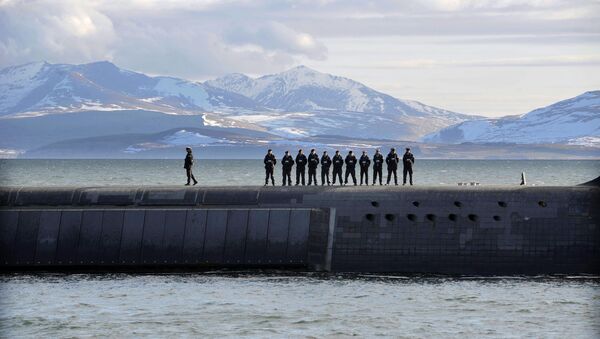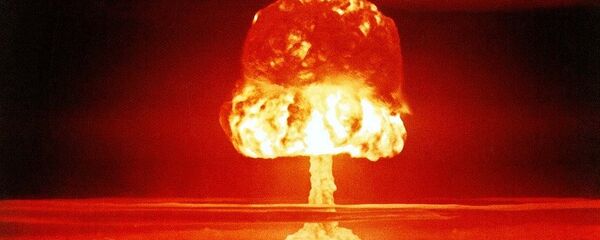Britain is in the midst of a general election. Labour's Jeremy Corbyn is a well-known opponent of nuclear weapons, despite his party's general refusal to condemn them.
So Fallon's statement is purely political in nature, Mercouris explained. It aims to highlight the division between the Labor Party's dominant faction and its leader, to depict him as a weak candidate.
"It's a very irresponsible thing to do," he told Becker.
So far, it's worked. Mere hours after Corbyn made a statement Sunday that he would never authorize a pre-emptive nuclear strike, members of his party spoke out to the contrary. Interestingly, Mercouris pointed out, many within the Labour Party are perfectly aware of Fallon's pretense and are "perfectly comfortable to play along," he said.
There are those within the Labour Party opposed to Corbyn's leadership, and his resistance to militarism will "freeze these people out," Mercouris explained, rendering them unable to promote their own more aggressive ideas. These people are eager to deepen the division within the party, he says.
"The subject of the British nuclear weapons is far too serious and far too important to be used in this way," Mercouris noted, adding that statements like Fallon's, even if uttered away from media cameras, have a range of ramifications.
"If we start using them or threatening to use them on a regular, routine basis, then, I'm afraid, the whole structure of international relations we know will collapse and we will be in mortally dangerous situation; indeed, the one in which a disaster is likely to happen," he added.
If examined realistically, Mercouris noted, since the Korean war in the mid-20th century, North Korea has not started a single war with a foreign nation; NATO, on the other hand, has waged wars left and right in the meantime.
"It would be a complete reversal of fact to say that North Korea is the danger; it is a country which is in danger, and that's why it is acquiring nuclear weapons," he added.
It would be an interesting situation, Mercouris said, should Russian President Vladimir Putin or Chinese President Xi Jinping make a similar statement: to announce publicly that their countries would start a nuclear war if they felt threatened.
"The British establishment would have gone absolutely berserk on it," he said, and waves of denunciation would have followed. "Especially, dare I say, if it would be made by Mr. Putin, who is a particular bogeyman in Britain. The Chinese leadership and North Korea — they're too far away to concern the British people," Mercouris said.




